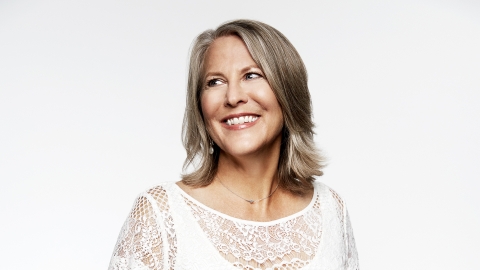Trade Show Leader: Freeman’s Carrie Freeman Parsons

Freeman Vice Chair Carrie Freeman Parsons grew up in the business, and as the third generation of Freeman leaders (her grandfather is founder Buck Freeman; her father is Chairman Don Freeman), Freeman Parsons employs forward-thinking strategies that maintain the company’s reputation as an industry innovator while staying true to its core values.
Freeman Parsons has been frequently recognized by her peers and the industry at large for her outstanding contributions and achievements.
She is involved with numerous organizations and nonprofits - one passion is her involvement with Girls Inc.— and begins and ends each day fulfilling Freeman’s obligation to positively affect employees, stakeholders, and the community.
She’s unwilling to claim success based solely on the bottom line; instead, Freeman Parsons is dedicated to leading a socially responsible organization. Just as she pushes the boundaries on what it means to create an amazing brand experiences, she simultaneously provides future generations with the skills needed to make the world a better place.
Freeman Parsons joined Freeman in 1985 and has held numerous positions - including general manager, president of Freeman Exhibit Company, and chief marketing officer and is also a member of Freeman’s board of directors.
As Freeman’s current vice chair, Freeman Parsons has set her sights on formulating effective thought-leadership strategies and implementing them from the top down.
She took time out if her busy schedule to tell TSNN how she started out in the industry and what she hopes her personal impact in the industry will be.
TSNN: How did you get started in the industry?
Freeman Parsons: I started working with Freeman during the summers of high school and college. I joined the company full time upon graduation from college in 1985. When I joined as a sales executive, I didn’t quite understand what the industry was all about, but I knew that I loved the people and that was enough for me.
TSNN: How different was the industry when you started, compared to today?
Freeman Parsons: Events were no less relevant then than they are today, but they were certainly different. The work has always required late nights, weekends, and travel, but I will say that the work is much more complicated today. In 1985, guests had to attend events in person if they wanted to network, have access to educational content, or learn what was new on the exhibit floor. That isn’t necessarily true today. The technology of the day was limited to slide projectors, fax machines, and pagers. Our inventory of service offerings was much smaller, and certainly the pace of work was slower. We actually had down times back then – in today’s world we are busy 52 weeks of the year.
TSNN: What are some of the lessons you have learned being a part of this industry?
Freeman Parsons: They are the places where positive change occurs, where brands are built, and where people are inspired, enlightened, and enriched. This industry is a team sport. The interdependence of the relationships between clients, suppliers, trades, facilities, cities, etc. are critical. And, most importantly, this industry is built around relationships.
TSNN: What is your favorite part of being in the industry?
Freeman Parsons: We work with a wide variety of associations and corporations, and that gives us the opportunity to learn about the unique challenges and opportunities they each face. We have a front row seat to the issues that are impacting their industries, and we have the ability to help them achieve their objectives.
TSNN: What’s the one thing you miss most from the past?
Freeman Parsons: Time. “Back in the day,” before email and our crazy schedules, we had time to engage with our clients and co-workers without the pressure of keeping up with other responsibilities. We have always had deadlines, but this line of work was certainly less intense 30 years ago.
TSNN: What’s one thing you’re glad to see go away?
Freeman Parsons: The lack of diversity. There is still room for improvement, but in 1985, I could count on one – maybe two hands – how many of our clients were women or people of color.
TSNN: What do you hope will be your personal impact on this industry?
Freeman Parson: It is important to me and to my family that Freeman reflects how business should be conducted. I intend to continue our legacy of being values-led and purpose-driven so that we may foster trust and create awesome work with our clients.
TSNN: Any wise words about what this industry means to you overall?
Freeman Parsons: I truly believe that the work we do is important to society, to economies, and to humanity. If everyone involved in the events industry truly embraced the positive influence their event can have, we could literally change the world for good.


Add new comment